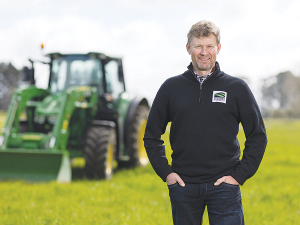There's general farmer backing for the government's latest reforms of the Resource Management Act (RMA) but some are seeking clarity.
Federated Farners are wholeheartedly backing the reforms announced last month, however, Beef + Lamb NZ and DairyNZ have questions.
Under the reforms just released, the existing RMA will be replaced by two separate acts - one dealing with planning and the other on the natural environment.
Key issues for farmers relate to property rights, starting with the presumption that land use is to be 'enabled', meaning unless there is a significant impact on others or the national environment, there is no barrier.
The other major reform of note is that regional councils will no longer individually be able to set rules as in the past and one national set of standards will apply over such matters as freshwater, biodiversity and coastal policy. What's more, environmental limits will now be centrally controlled.
The overall emphasis is on 'national standards' rather than the higgledy-piggledy regional approach. To top it off a new national compliance regulator with a regional presence will be established. The big losers in the changes are regional councils.
Federated Farmers RMA spokesman Mark Hooper says all the unnecessary box ticking and red tape are set to go. He adds that the reforms will put an end to farmers spending too much time and money on resource consents and processes holding up investment in things like new water storage and rural infrastructure.
"The Government has delivered a pragmatic and common-sense plan that will put respect for property rights front and centre. This means that, unless farmers are doing something that will have a negative impact outside their property's boundary, they can essentially do what they want on their own land," he says.
Hooper says the new laws will mean that where a council takes a property right away, the council will have to pay compensation for the loss of property value. He says Feds have always pushed back on councils' overzealous use of overlays like Outstanding Natural Landscapes (ONLs), Significant Natural Areas (SNAs), or Sites and Areas of Significance to Māori (SASMs).
"We're talking about little detail like what colour their shed can be and needing a resource consent to put in a new fence, through to bigger hurdles such as being unable to develop or convert their land," he says.
Hooper says Feds also welcomes the shift to national standards, while noting the Freshwater Farm Plan system is the ready-to-go standard for farming.
He says it's never made sense for farmers to be farming by resource consent.
Farmer Interests
DairyNZ says the decision to replace the RMA is fine, but it wants more detail to make sure it's truly beneficial to farmers.
DairyNZ's Dr David Burger says the RMA impacts almost all facets of the day-to-day operations on farm, so it is critical that dairy farmers' interests are heard.
"Reducing complexity, having more consistency, and greater controls on when and how land use can be restricted, are easy fixes that we strongly support. However, we have questions around the possible introduction of market tools and levies for resource use, particularly in relation to water quality," he says.
Burger says DairyNZ research in this area clearly show that it is impossible to put a 'number' on freshwater contaminants because of the complexity of the contaminants and the freshwater systems in each catchment.
"Changes to our resource management system need to ensure decision making around resource use and environmental limits recognises what fair and achievable water quality looks like and how this can be measured and delivered," he says.
Burger says DairyNZ has been proactively developing solutions to freshwater quality issues within the existing framework and they need to be clear how it will work.
Clarity Needed
Beef + Lamb says while it supports the need for RMA reform, it's seeking clarity from the Government on specifics of the proposed replacement that could potentially impact sheep and beef farmers.
Chair Kate Acland says they welcome the proposal's emphasis on property rights and the move to place less emphasis on consenting and more on permitted activities. But Acland says they have concerns on some key points and need to see more detail on those.
"We're strongly opposed to using mechanisms such as allocation of tradeable rights to individual farms, or cap and trade systems, as a way of addressing water quality issues. These mechanisms will be expensive, complex and unworkable," she says.
Acland says they also have concerns about setting environmental limits at a national level, as B+LNZ's work on the suspended fine sediment national bottom lines last year showed national limits can be deeply flawed and unachievable. She says using them as the basis for a system and relying on people to trade their way out is particularly worrying.
Acland says B+LNZ is also concerned about proposed changes to fines which could see a significant increase in what farmers could be fined for, regardless of whether any failings were intentional or not.



















